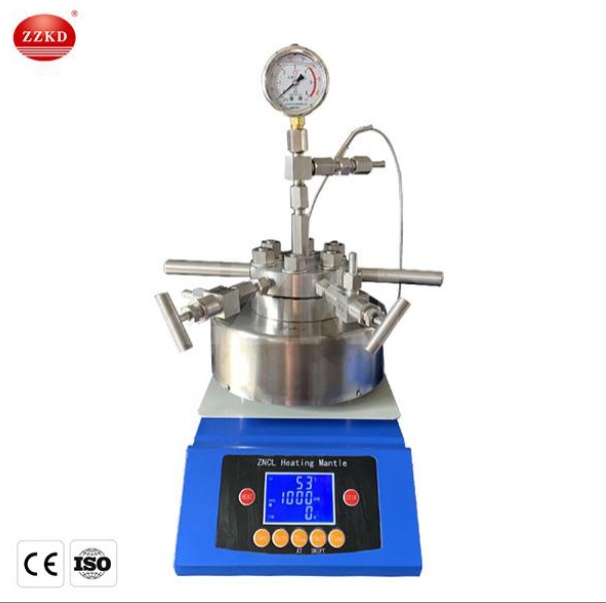High pressure reactor vessel have a wide range of applications in laboratory settings due to their ability to control and study chemical reactions under elevated pressures. Some common applications include:
Hydrothermal Synthesis: High-pressure reactors are widely used for hydrothermal synthesis, where reactions are carried out in water or other solvents at elevated temperatures and pressures. This is crucial for the synthesis of advanced materials like nanoparticles, nanowires, and zeolites.
Catalysis Studies: High-pressure reactors are essential for studying catalytic reactions that require pressure control. Researchers can investigate the effect of pressure on catalytic activity, selectivity, and reaction mechanisms.
Hydrogenation: Hydrogenation reactions, which involve the addition of hydrogen to molecules, are often conducted under high pressure to enhance reaction rates and selectivity. High-pressure reactors are used in organic synthesis and pharmaceutical research.
Polymerization: High-pressure polymerization processes can be optimized using high-pressure reactors. Researchers can control reaction conditions to achieve specific polymer properties, molecular weight distributions, and crosslinking.
Chemical Kinetics: High-pressure reactors enable the study of chemical reaction kinetics under varying pressure conditions. This information is crucial for understanding reaction mechanisms and designing reaction pathways.
Gas-Phase Reactions: Reactions involving gases, such as gas-phase catalysis and gas adsorption studies, can be studied more accurately under controlled high-pressure conditions.
Supercritical Fluid Reactions: Supercritical fluids, which exhibit properties of both liquids and gases, are used in various applications such as extraction, chromatography, and chemical reactions. High-pressure reactors allow researchers to explore supercritical conditions for different reactions.
Electrochemical Reactions: High-pressure electrochemical reactors enable researchers to study electrochemical reactions, such as electrolysis, energy storage, and corrosion, under controlled pressure conditions.
Pressure-Dependent Phase Transitions: High-pressure reactors are used to investigate how pressure affects phase transitions, solubilities, and other thermodynamic properties of compounds.
Material Synthesis: High-pressure conditions can influence the formation and properties of materials, including ceramics, semiconductors, and superconductors. Researchers use high-pressure reactors to tailor material properties.
Process Optimization: In the development of chemical processes, high-pressure reactors are employed to optimize reaction conditions, such as pressure, temperature, and residence time, to achieve higher yields and improved efficiency.
Environmental Studies: High-pressure reactors are used to simulate and study reactions that occur under extreme pressure conditions, such as those in the Earth's mantle, contributing to our understanding of geological and geochemical processes.
Corrosion Studies: Researchers use high-pressure reactors to investigate how materials react with corrosive substances under high-pressure environments.
Gas Hydrate Studies: High-pressure reactors are used to study gas hydrates, which are ice-like structures formed from water and gas molecules. Understanding gas hydrate behavior is important for energy and environmental applications.
These applications demonstrate the versatility and importance of high-pressure reactors in advancing research across various fields, from materials science and catalysis to environmental science and energy research.


No comments yet